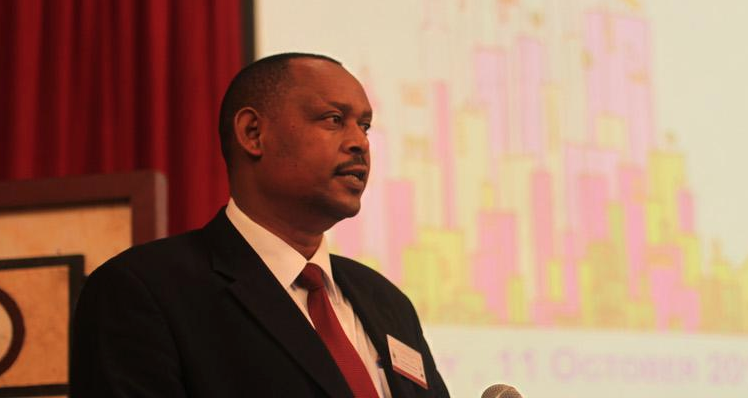
Life Matters | Nov 16,2024
Public transporters are facing financial constraints following the order of transport authorities to undergo a transition from associations to commercial entities. Last month, leaders of the Addis Abeba Transport Bureau alerted of the transition of around 5,000 minibus taxi drivers, sending ripples to the service providers in the transport sector.
The push for modernizing the city’s taxi fleet is driven by the need for new vehicles to improve quality and efficiency, transitioning them into share and private limited companies, with stringent requirements and minimum vehicle quotas.
However, it is proving to be arduous. with difficulties exacerbated by financial and organisational burdens.
Ayalew Seyoum, chairman of the Addis Ababa Taxi Owners' Association, noted that addressing these infrastructure needs is essential to maximize new rules and regulations being pushed by city authorities.
Anteneh GebreMichael, a taxi driver frequenting the Bole to Mexico route, identified a significant gap and issue with the requests made by the Transport Bureau. "Our capacity is not being considered," he stated, noting that new vehicles cost around five million Birr.
Key concerns include the availability of terminal stations, maintenance garages, and gas stations, which are critical for successful implementation. Ayalew noted that addressing these infrastructure needs is essential to maximize new rules and regulations being pushed by city leaders.
Federal and city officials have set ambitious improvement plans for transportation facilities in tandem with the city’s new urban landscape, ultimately planning to replace the city’s ageing taxi fleet.
During a recent discussion, Minister Alemu Sime (PhD), of the Ministry of Transport and Logistics, and Yabibal Addis, Addis Ababa Transport Bureau head, emphasized the need to modernize service delivery to effectively address existing challenges in the transport sector.
Alemu highlighted the importance of improving organizational structures and advocated for the uplifting of outdated vehicles.
Ayalew highlighted the necessity of government support and low-interest loans with extended repayment terms to facilitate the transition to newer, more efficient vehicles.
At the heart of recent developments is a new project being proposed, dubbed “the Minibus Gradual Replacement Project,” which aims to tackle issues of aging and inefficient minibuses which contribute to unreliable transportation, long commute times, and increased traffic congestion.
Multiverse Enterprise Plc, owned by Seid Negash, has proposed the collaborative project with the Defense Engineering Industry Corporation (DEIC), setting ambitious plans to arrange financing and manufacture around 5,000 diesel-powered and electric vehicles.
The proposed plan includes a financing scheme with banks to provide loans to taxi owners at low interest rates, while suggesting duty-free imports be granted for manufacturers to guarantee affordability.
Amid all this, authorities have also sought to alleviate the traffic congestion daunting the city by imposing mass transport on certain routes to not include minibus vehicles, effectively barring them from several main streets. Studies show that minibuses comprise 69 to 73pc of the city’s public transportation fleet.
The Transport Bureau made the announcement, slating the new restrictions to begin this week, on September 22, 2024. This sent ripples through the transport sector with taxi owners expressing deep concerns about the economic impact of these restrictions.
A few days later, however, the Bureau rescinded its order, stating no immediate changes to current workings and it would further discuss the matter with stakeholders going forward. A district transport official clarified that the planned transport adjustments only regarded modifications to route deployments.
However, the fears were not subdued among the taxi associations and they were compelled to hold an urgent meeting last Saturday. Nuredin Ditamo, head of the Blen Taxi Owners' Association, stated that this action could adversely affect taxi owners and everyday users, calling it a violation of movement rights.
A 2022 study highlights the critical role of blue and white minibus taxis serving over one million passengers daily, exhibiting challenges including inefficient operations, regulatory constraints, and high operational costs.
It pointed to drivers often bribing traffic officers to evade fines, with taxis still lacking the institutional strength to improve service quality.
The study recommends formalizing operations by restructuring associations into share companies, implementing ticketing systems, and establishing wage-based remuneration for drivers. It also calls for greater government oversight and supportive policies like tax exemptions and fuel subsidies to enhance the sector's viability.
Berhanu Zeleke (PhD), a transport expert, advocated the initiative to transform traditional associations into share companies as a progressive step towards improved services in the sector.
"Older cars are more prone to accidents,” he said, highlighting the critical safety concerns associated with aging vehicles that dominate the city’s transportation landscape.
However, he revealed concerns on how the transitions will take place, questioning logistics and processes, while underscoring the importance of addressing the financial gap.
He suggested proper financial strategies for the smooth transition of the transport sector to introduce efficiency and quality of services.
PUBLISHED ON
Sep 22,2024 [ VOL
25 , NO
1273]

Life Matters | Nov 16,2024

Fortune News | Jun 01,2019

Radar | Oct 14,2023

Commentaries | Oct 16,2021

Featured | Sep 07,2025

Fortune News | Jun 18,2022

Commentaries | Jan 18,2020

Radar | Aug 03,2025

Radar | Jun 01,2019

Fortune News | Feb 11,2023

Dec 22 , 2024 . By TIZITA SHEWAFERAW
Charged with transforming colossal state-owned enterprises into modern and competitiv...

Aug 18 , 2024 . By AKSAH ITALO
Although predictable Yonas Zerihun's job in the ride-hailing service is not immune to...

Jul 28 , 2024 . By TIZITA SHEWAFERAW
Unhabitual, perhaps too many, Samuel Gebreyohannes, 38, used to occasionally enjoy a couple of beers at breakfast. However, he recently swit...

Jul 13 , 2024 . By AKSAH ITALO
Investors who rely on tractors, trucks, and field vehicles for commuting, transporting commodities, and f...

Nov 1 , 2025
The National Bank of Ethiopia (NBE) issued a statement two weeks ago that appeared to...

Oct 25 , 2025
The regulatory machinery is on overdrive. In only two years, no fewer than 35 new pro...

Oct 18 , 2025
The political establishment, notably the ruling party and its top brass, has become p...

Oct 11 , 2025
Ladislas Farago, a roving Associated Press (AP) correspondent, arrived in Ethiopia in...